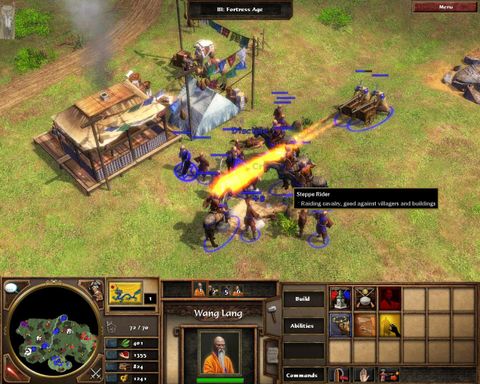


The foragers, who left the army, spread out across the land looking for good grass.’ A few months later another Frankish foraging party, again consisting largely of squires, was badly cut up in a Muslim ambush: ‘Not long after, our squires and servants went out to look for fodder for the pack animals and unwarily went too far. The noble lords of the Temple were guarding them at that time. These guards would be better prepared for close combat and their main duty was to be on the watch for enemy troops, rather than focusing on finding supplies.ĭuring the Third Crusade, for instance, we are told that ‘the esquires went out from the army foraging for fodder. For this reason, it was generally best practice for an escort of more heavily armed soldiers to be assigned to them. The act of foraging required a relatively high degree of dispersal, however, and there was always a danger that foraging parties would be surprised by enemy cavalry patrols. This was clearly not high-status work, but it was far more suited to these lightly armed horsemen than to heavier troops. Large numbers of squires were sometimes grouped together when the army went on campaign, and sent out as foraging parties. Given the perennial need for manpower, no one was left standing around. But the majority could perform as lightly armed cavalry and the evidence is overwhelming that they did fight when required, albeit in roles that reflected their lighter equipment and more junior status. No doubt some, particularly the younger boys, were indeed non-combatants, or were left to guard the baggage train. Some of the duties ascribed to the squires were so humble that many commentators have been led to believe that they played no role in battlefield fighting. The grooms, on the other hand, were more likely to get the less glamorous but nonetheless essential tasks, such as foraging and mucking out the stables. The trainee knights would have had a programme of weapon training and were gradually given tasks which more actively supported their masters in battle. This inevitably affected the military roles they were given on campaign. Some, for instance, were trainee knights and therefore of high social status, while others were servants, acting as grooms, cooks and so on. And the term ‘squire’ covered a range of different social positions. The exact role and status of the squires, variously known as ‘armigeri’ or ‘ecuyers’, seemed to vary according to individual circumstances. There was a large number of squires in the army, certainly more than the number of knights, as each had one or more squires to assist him.


 0 kommentar(er)
0 kommentar(er)
